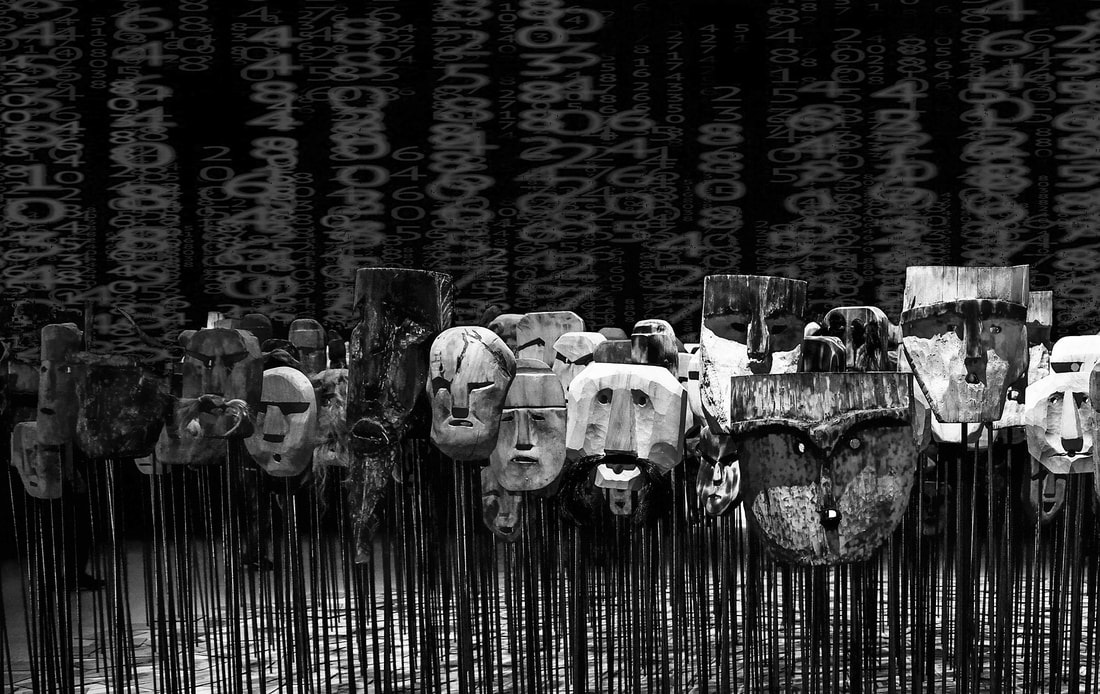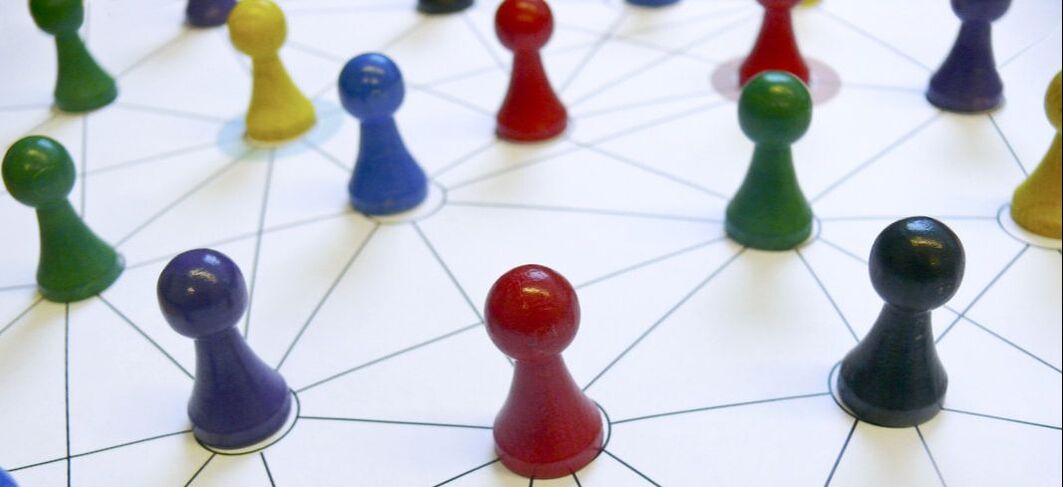|
This is an excerpt from a month long email chain between Mo Horner and research assistant Derek Manderson about Re: Current Theatre’s New Societies at the Kick and Push Festival in August 2020. Hi Jenn and Mariah, My apologies for an email this late at night, but I just attended the opening night of Re:Current’s New Societies at the online Kick and Push Festival. WOW. It was so exciting for me to see a strong example of participation in a digital theatre performance. There is a lot to think about here in terms of the guide, in terms of digital theatre creation/translation, and in terms of the gamification of a utopian society. Without spoiling, it sounds like there are a range of things that can happen in this show which affects teams of players differently. When I can find some spare time over the next few days, I’m hoping to get some more cohesive thoughts put together about my own experience which I would be happy to share if it’s of interest. In any case, I had such a great time with this show and thought I should share while I’m still charged with excitement! I hope you are both doing well as the summer draws to a close. Cheers, Derek ---------- Hi Derek, You were certainly right about the participatory potential of this one! I’m curious what you think: Was New Societies really a game? Looks like a game. Smells like a game. Plays like a game. BUT - I’m fairly certain that it ends the exact same way every time. In war. One district is selected to be the “winner” and that district has to choose one other district to “save.” This ending is fixed and happens every time. For me, that fixed ending becomes a “phony multiplicity,” it’s not a real game, there is no real slack or wiggle room, all our choices make no difference. If it’s not a game but instead a performance or a work of art, then I do wonder about intentionality. Is this kind of inevitability the point? This brings me to my second question. The players in my district seem to identify as a bunch of anarchists so it definitely felt like we were designing a society with potential! However, because of the fixed ending (the fixed ending that is war, even worse) New Societies is feeding us a participatory promise that we couldn’t achieve. The promise is: “Design your own society, however you want” but the range of actions are colonial and capitalist (ie, buy land, make decisions re: land ownership and Indigenous people, save money). Design your own society but no matter what you do, there is war. I’d love to chat more with you about it! Mo Hi Mariah, So interesting to hear about your experience with the show. It certainly adds some new layers. I should begin by saying that my group was the one to eventually “win,” which may influence my opinion. To me, it felt like a game because of the real-time decisions we needed to make which influenced the overall state of our society. My district was in the lead from the beginning, choosing to invest heavily in the supply storage early on and then quickly moving to establish societal advancements in favour of occupying land. Witnessing the rewards of our actions was a deeply satisfying experience, especially in the form of competition. When it comes down to it, winning is just fun. If the selection of the “winner” is random, I think this show loses some major points in the game category. The construction of the experience is very game-like, but perhaps with a pre-determined ending, it is more of a performative game than a true game itself. I have heard that the “losing” districts must decide whether to revolt or to go in peace in the end. I wonder, if every group decided to be peaceful with the final decision, would there still be war? Perhaps a revolt is always the ending because groups of people will resist their political demise with war. And I felt that was part of the statement that the show was making. Can we truly create a Utopian society? Or is conflict eternal? I was quite taken with the gamification of governing. The negotiations between a group of strangers about how best to rule a society was an interesting experience for me. There was one point where my district elected to limit families to one child because the alternative was allowing our people to starve or to deport a portion of our population. Talking it over with some friends afterwards, we debated whether that was the correct choice or not. The show, therefore, sparks some interesting conversations about governance and whether or not one can “win” at governing a society. I think the container for participatory experiences is always going to be a challenge. Ideally, a true participatory sandbox would have allowed you to design a society to your exact specifications and given you more choice over how your society grapples with overpopulation. I think in many ways, the game is guided too heavily. However, I personally am not bothered by some fixed options because I know that there needs to be a container. I’ve played enough “open-world” video games to know that the sandbox needs to end somewhere. What makes them fun and what made this experience exciting for me was that we made choices which had real-time consequences. One of my biggest thrills was feeling that I had “won” because of my choices and hearing from my friends that they had chosen to revolt against me. Let me know what you think! Thanks for talking this through with me, I’ve been thinking about this show a lot over the past little while. All the best, Derek ---------- Hi Derek, I’m responding here but I also have an idea. I wonder if this little email exchange could find a place on the blog? I’ve been thinking about this show since I saw it and this exchange has been really rich in that thinking process. My main concern with this game is what it asks us to do in order to “win” the game and be the “best” because you’re right, winning is fun. When asked if we would pay the Indigenous community in our district a tax for taking their land, it meant we’d empty our supply storage. We did so. In effect, this made us “lose” the game. That troubles me as an exercise. It’s positioning colonialism and land ownership as the way to “win”. It’s the same thing with your thoughts about “gamifying governing.” I think that is an interesting question, ethically, but the way they push us towards governing decisions that depend upon colonial instincts troubles me. I love your thought "I wonder, if every group decided to be peaceful with the decision, would there be war?” That is a beautiful way to phrase it. A colleague of mine said the same thing. Maybe this show is a mirror. We will always choose war so there will always be war. If this is the point, that our world (digital, game, or otherwise) will always present us with an inevitability of choice that leads to war, then my frustration feels like an intention from the artists. However, if the piece as a game, is trying to offer an experience that breaks apart that inevitability of choice, then I’m not sure it’s a successful experience. That’s it for now, Mo Hi Mariah, I apologize for taking a little while to respond! I would love to make this exchange a blog post. I think the document reads in an engaging way, and it shines a light on an evolving process of deconstructing a participatory experience. Here are some more of my thoughts to add to the conversation: I think the colonial lens is an important notion to ponder. My district didn’t encounter an Indigenous community in our problem set, and so I only heard more about that ethical dilemma afterwards from other participants. As far as I understand it, “winning” in this container boils down to keeping enough resources in the supply storage to provide for the society, and paying attention to social advancements. I think the issue with this exercise arises when the Indigenous communities are entered into the container, and their presence forces the participants to decide between losing the game or winning through a colonial attitude. I agree that this mode of play is troubling, and the colonial undertones are problematic. I think perhaps the win condition is worth pondering further. Although I initially felt that the winning and losing the game was critical to the experience, our conversation has sparked some alternative perspectives in my mind. There’s a reason that we consistently use quotation marks to indicate winning: there is no real winner. Even in victory, the “winning” society crumbles to chaos in the shadow of war. What if the statement here is that the game of governance cannot be won because there is no such thing as a utopian society? Inevitably, the imperfections and complications of co-existence topple the image of utopia. One of those complications which all colonial societies must confront is the harrowing past, present and future of stolen land. Maybe, the point here is that when faced with the truth about how our new society continues to displace Indigenous communities, we are forced to reflect on our own drive to win and how morality complicates this desire. We must “lose” and give up on utopia if we wish to follow our moral compass. Thus, the players are benefiting not from the game itself, but the frustration of colonialism and war in this container. This ultimately emphasizes the role of the player and the self-reflection that can only arise from participating. Talk soon, Derek --------- Hi Derek, You are totally picking up what I’m putting down re: the colonial choice. Colonialism as “winning” is an oppressive and dominant perspective and unless this game is self-referential enough for that to be the point, I find it a troubling exercise. When you’re talking about the win condition, you get exactly to a point that Jenn and I got to yesterday in a meeting. Perhaps this awareness is the point. Our systems (colonial, land ownership, capitalism, central government, etc) are so pervasive, that regardless if we have free reign, we will always end up creating a society that looks like ours and is ultimately broken enough to end in global conflict. If it’s like a mirror, then this is an extremely worthwhile exercise. If New Societies asks us to witness the fact that capitalism, colonialism and war is so entrenched in our psyche, we will always end up with the same result, then I’m sold. If they are asking us to consider the fact that our current systems are leading us to inevitable failure, I see that…but I’m still grumpy. Maybe the reason I’m grumpy is because I see a potential that wasn’t reached. I don’t see utopia principles as something inherently impossible. In a talk by artist and activist Syrus Marcus Ware yesterday during the Scholar Strike, he quoted Toni Cade Cambarayou by saying “it is the role of the artist to make the revolution irresistible.” In a moment when abolition, anti-capitalism, and the call for new structures is finally getting airtime, why didn’t New Societies offer the potential to “make the revolution irresistible,” find ways to allow participants (who are also citizens) to imagine and “play” a utopia with entirely differently systems that perhaps didn’t inevitably lead to war? It looked like that’s where it was going. Sure - here I am rewriting the ending, which is bad dramaturgy. But alas! Maybe it’s because I’m studying a lot of abolition theory right now. We don’t have to lose, we can dream up and “play” utopia. It’s possible. There are other options than capitalism and colonialism! That’s it from me, Mo New Societies is created by Re: Current Theatre and presented at the Kick & Push 2020. Created by Re:Current Theatre, with concept and direction by Brian Postalian. Performed by Sena Cagla, Howard Dai, Alexa Fraser, Evan Medd, Hannah Meyers, Brian Postalian, Pascal Reiners, Amanda Sum, Meagan Woods, Montserrat Videla. Dramaturgy by Evan Medd. Scenography by Christian Ching. Sound Design by Stefan Nazarevich and Liam Carsley. Stage Management by Laura Coons. Technical Direction by Kevin Kiju Kim and Mandeep Sunnerd. Read more about the show HERE.
0 Comments
|



 RSS Feed
RSS Feed
